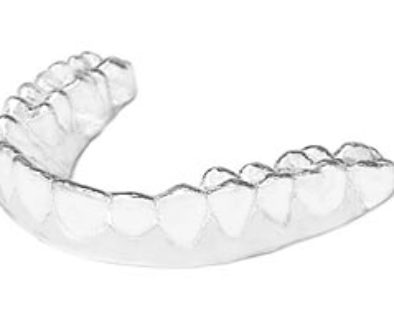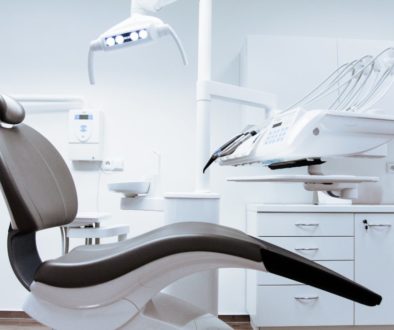Six Reasons Why You Can’t Get Numb At The Dentist
 Genetics
Genetics
Did you know that simply being redheaded makes it so that you require more anesthetic for dental procedures? The same gene that helps produce your red hair also has some effects on the pain receptors in your body. Your pain tolerance is usually lower than other people and you are more resistant to anesthetics than other people. One study showed that people with red hair required a full 20% more anesthetic for general anesthesia than other patients. It is the same with dental anesthetics where you require more anesthetic to get fully numb. If your dentist isn’t aware of this link, make sure they know so that they give you more anesthetic to start.
It is also very likely that there are other genes that affect pain tolerance and the effect of anesthetics. Red hair is an easy one because it is so easy to spot. Others will be much more difficult to find by scientists. If you know that you have difficulty getting numb at the dentist, let your current dentist know so that they can give you more anesthetic or use different techniques.
Your Anatomy
Everyone’s teeth, bones, nerves, and blood vessels are in slightly different locations. Some people also have different nerves that supply different areas of their body. I might put anesthetic in the same specific area for ten different patients and only nine out of ten will get numb. Usually this is because the nerves are in a different place or there is an extra nerve that needs to be numb. You can also have long roots on certain teeth. If your dentist doesn’t know quite how long they are (which can be difficult to estimate based on x-rays) they won’t be able to put the anesthetic in the correct spot.
Anxiety
If your anxiety level with dentistry is really high, it can affect your ability both to get numb as well as tolerate any slight amount of discomfort. Many anxious patients move during the injection which can make it very difficult to place the anesthetic in the correct location. You might also interpret pressure or a light touch as pain. I’ve had plenty of patients who have extreme dental anxiety who will jerk their heads, grimace, or move all over before I’ve even touched anything. If you feel like your dental anxiety affects your cooperation for dental treatment you should ask about laughing gas or a medication to take before your appointment. This will make things much easier for you and your dentist. A light level of sedation also reduces the amount of anesthetic you need.
Infection
Did you know that an area that is infected doesn’t get numb nearly as well as a similar area that isn’t infected? Infected areas create a very acidic environment. For dental anesthetics to work effectively, they need to be close to a neutral pH. The low pH, infected areas make it so that only small amounts of the anesthetic are in their active state. This is one reason why some dentists will give you an antibiotic to reduce an abscess prior to a root canal or extraction. Another way to get around an infected area is to use a nerve block instead of local infiltration of anesthetic. A nerve block numbs the nerve further up, usually away from the source of the infection, and this allows it to block pain signals effectively. If a nerve block isn’t in an option in a specific spot, you may require quite a bit more anesthetic to get adequately numb.
Anesthetic
There are a couple of different ways that the anesthetic can affect how you get numb.
Expired – Anesthetic that is too old or has been stored improperly can break down and will be less effective. The biggest problem with anesthetic is when it is stored in temperatures that are too hot. The epinephrine is especially unstable and tends to break down quickly under these conditions. Some dentists will store the carpules of anesthetic in a warmer in order to make the injection more comfortable (temperature of the solution closer to your body temperature). This is a good idea but can definitely cause the epinephrine to break down if stored too long.
Bad Batch – Manufacturing problems may cause issues with the concentration or other ingredients. This is extremely rare especially if your dentist uses a reputable supply company.
Type of Anesthetic – Anesthetics without epinephrine don’t get you nearly as numb as anesthetics with it do. Certain anesthetics are also quite a bit more effective than other types. Currently articaine has been shown to be the most effective for most dental applications.
Dentist Error
Sometimes your dentist may place the anesthetic in the wrong place. Just like you have good and bad days, so do dentists. Sometimes we don’t estimate well or aren’t paying as attention as well as we should be. I had a couple of bad days in a row where I couldn’t seem to get people numb. I was sure that there was something wrong with the anesthetic so I took a carpule and injected it on myself. Of course, I got super numb and I had to admit that I was just having a bad couple of days! Shortly after that, everything went back to normal.



